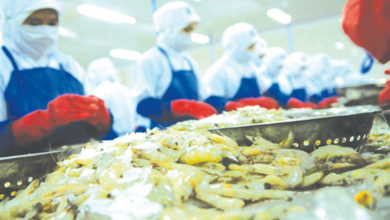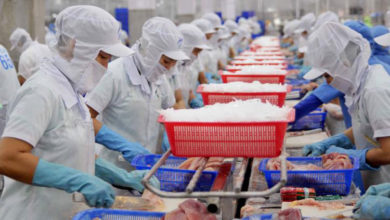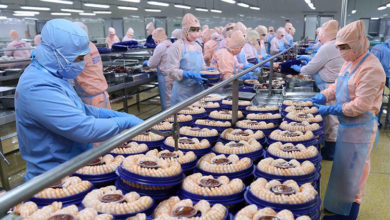Export of pangasius to Thailand increase by 42%
According to Vietnam Customs, Thailand tops the ASEAN region in terms of consuming Vietnamese pangasius. In the first half of March 2024, Vietnam exported nearly 3 million USD worth of pangasius to Thailand, up 42% from the same period last year. As of March 15, 2024, the cumulative export of pangasius to this market increased by 1%, reaching nearly 13 million USD.
According to data from the International Trade Centre (ITC), in January 2024, Thailand imported 3,000 tons of whitefish (equivalent to over 5 million USD) from the world, a decrease of 26% compared to the same period last year. Among these, frozen pangasius fillet HS code 030462 from Vietnam were the most consumed, with nearly 4 million USD, equivalent to 2,700 tons, representing a 9% decrease in value but a 7% increase in volume compared to the same period in 2023. The highest import was recorded in March 2022, totaling over 10 million USD, within the past decade since 2015.
In Jan 2024, ITC updated that Thailand purchased nearly 3,000 tons of whitefish from Vietnam, while imports from the United States – the second-largest whitefish supplier to Thailand – were only over 140 tons, followed by China with 75 tons, and Russia with 70 tons.
According to ITC, in 2023, Vietnam was the largest whitefish supplier (mainly pangasius) to Thailand, accounting for 52% of Thailand’s total whitefish imports from the world. Thailand spent nearly million USD buying whitefish from Vietnam in 2023, a decrease of 35% compared to 2022. October 2023 marked the peak month for whitefish imports, with over 7 million USD worth spent on Vietnamese whitefish, a 49% increase compared to October 2022.
Following Vietnam, the United States, Russia, China, and Norway were also among the top whitefish suppliers to Thailand, with respective import values of 26 million USD, 7 million USD, 5 million USD, and 3 million USD in 2023.
Thailand remains a positive and optimistic destination for seafood exporters, especially for pangasius, which has become popular among the local people in 2024.
VFM






